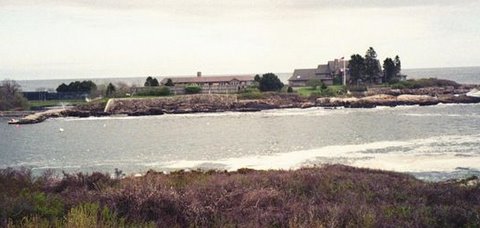[Part I here.]
In previous wars, allegations of atrocities have been made by either victims or witnesses. For example, in the case of My Lai, reports were originally made by US helicopter pilots who were shocked by what they saw as they hovered over the action. There’s no indication that anyone involved in the actual murders came forward with a mea culpa, and the investigation was stalled until it went public.
My Lai was a watershed of sorts, a bona vide and documented atrocity by the US military involving hundreds of victims (and please see this link to understand what actually happened there). Vietnam—and the shock of My Lai—seemed to open the floodgates towards self-revelation of war crimes, as exemplified by the Winter Soldier hearings in 1971, which occurred about a year after My Lai became public but before the trial and sentences had been completed.
These hearings were nothing if not profoundly controversial, and remain so even today. This is not the place to debate whether they were “packed with pretenders and liars” (as this comprehensive site alleges. and this book describes), or whether the testimony given at the hearings was valid. You can do the research and come to your own conclusions. What I’m most interested in for the purposes of this post is the fact of people—veterans or pretenders—publicly confessing to their own war crimes (or misdemeanors), real or imagined.
I’m hardly equating those who tell the truth with those who lie. Those who are telling the truth have fairly straightforward motivations, although they may indeed have an agenda. In this they are probably motivated by the same things that drive any confessor of a crime he/she has committed: conscience, and/or the apprehension that he/she might be about to be caught anyway.
But what about the liars or exaggerators (and Beauchamp may well be among them)?
Lying about war exploits is not at all unusual. In fact, it’s so common that there’s a stock commedia dell ‘arte character known as “Capitano” who fits this description, as Roger Simon pointed out in connection with John Kerry during the 2004 campaign. But this figure, although a liar and pretender, pretends at heroism, not barbarity. His lies are designed to augment his claims of bravery; they are most decidedly not confessions of wrongdoing.
My Lai, although an incident unique in scope and circumstance, had a profound effect on perceptions of the military in the US. Traditional kneejerk assumptions of bravery and honor—those that any “Capitanos” would previously have been bragging about—were stood on their head.
The peculiarities and special characteristics of the Vietnam War that provided the context for My Lai were largely unknown to the American public; to gain some insight, please go here, scroll down to about a quarter of the way from the bottom, and take special care to read the sections entitled “Rules of Engagement,” “General Westmoreland’s ‘Strategy of Attrition,'” “Rotations,” “Enemy Tactics,” “Project 100,000,” and “Heavy Losses/Casualties.” These problems and others meant that Vietnam was a sort of transitional war in which the military was facing conditions for it was inadequately prepared, which led to especially heavy stresses for those who fought there.
This, combined with the beginnings of what might be called the “therapizing” of America, may have led to a different sort of “bragging”—this time, about wrongdoings. Unlike the vets of WWII, who believed that the best way to deal with whatever psychological trauma they had experienced during that war was to keep their mouths shut and reenter the peacetime world, Vietnam (and all subsequent) vets have been exposed to the idea that voicing feelings helps to exorcise them, and that confessing to crimes (or misdemeanors) could be one good way to do that.
During Vietnam, the Left was very active in organizing confessional events such as Winter Soldier. There is evidence that they were assisted in this by the Communists in Hanoi, who rightly supposed that such mass confessions would be good for their propaganda purposes as well. Whether or not the Communists were actually involved, there’s no doubt that the entire Winter Soldier event was a group rather than an individual one, and as such the confessing vets would have been subjected to interpersonal pressures, including suggestibility and even competitiveness.
False confessions are not limited to wartime crimes, however; they are a well-known phenomenon that police often have to deal with (one recent case is here.) Sometimes they are coerced, but it’s not at all unheard of for them to be voluntary.
What would motivate a person to make a false confession? Ordinarily, one (or some combination) of the following: the need to expiate guilt over some other offense, real or imagined; the desire for attention, even if negative; and/or the delusion that the false confession is actually true.
Beauchamp’s stories, if false, would almost undoubtedly fall under one or several of these headings. I will speculate that the second one—desire for attention—is the most likely motivator for Beauchamp, although that doesn’t rule out any of the others. But publication in TNR is certainly a plum for an aspiring writer (I wouldn’t mind that gig myself). He’s already revealed that he initially went to Iraq in order to write a book about this “misguided” war, so it’s clear that—whatever else may or may not have occurred to him after arriving there—he came there already having an antiwar agenda. It would stand to reason that Beauchamp also came to the Iraq war with the template set down by My Lai and the Winter Soldier testimony about the US military (as well as Abu Ghraib) set firmly in his mind.
If notoriety was his motivation, Beauchamp has already gotten his fifteen minutes of fame, and more—perhaps more than he originally bargained for when he took computer in hand and set about to write his dispatches. And he’s done his bit to further the image of the American soldier as demented war criminal—although, as with much of history, it’s repeating itself “the first time as tragedy [My Lai], the second as farce.”
[ADDENDUM: Here’s a related and recommended article by Rev. Paul W. McNellis, entitled “Pvt. Beauchamp: Proud of Being Ashamed?”]
[ADDENDUM II: A psychological phenomenon that ties in somewhat is the odd syndrome known as Munchausen’s.]




